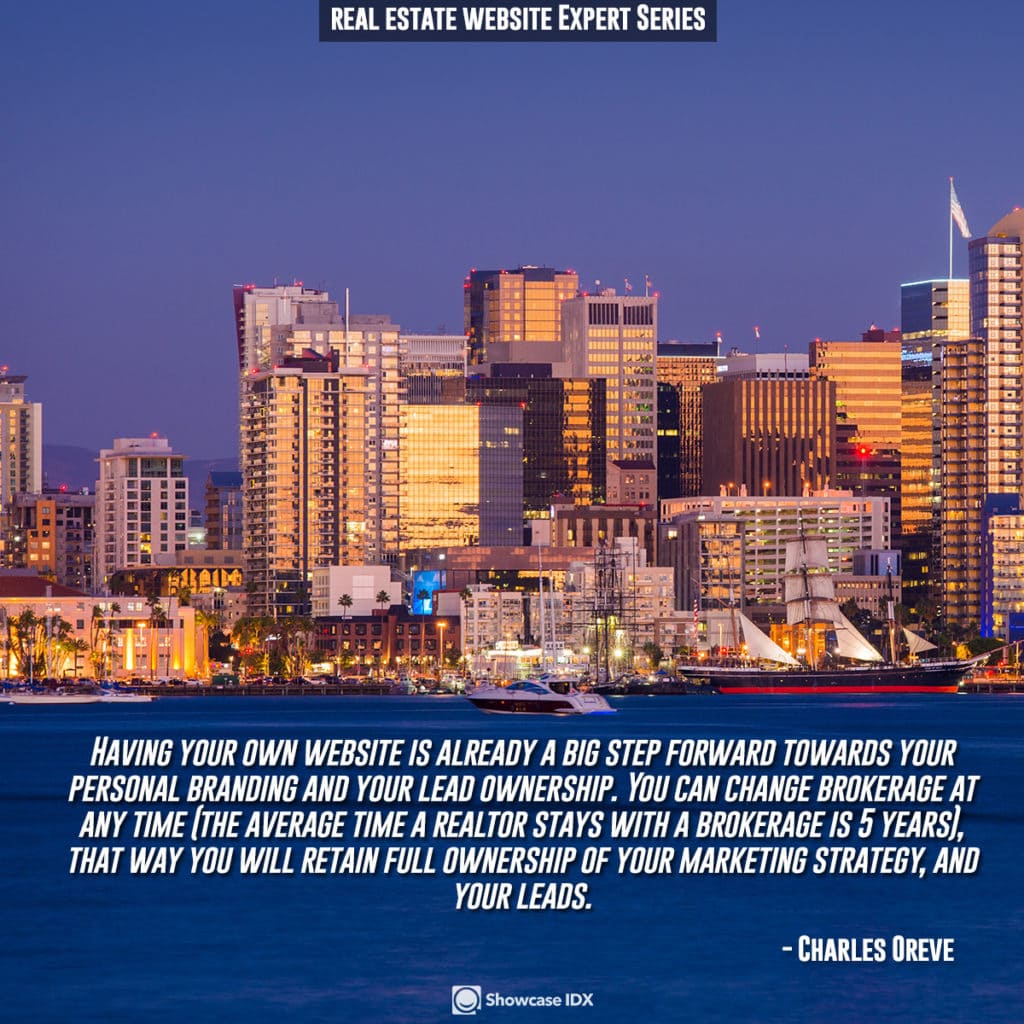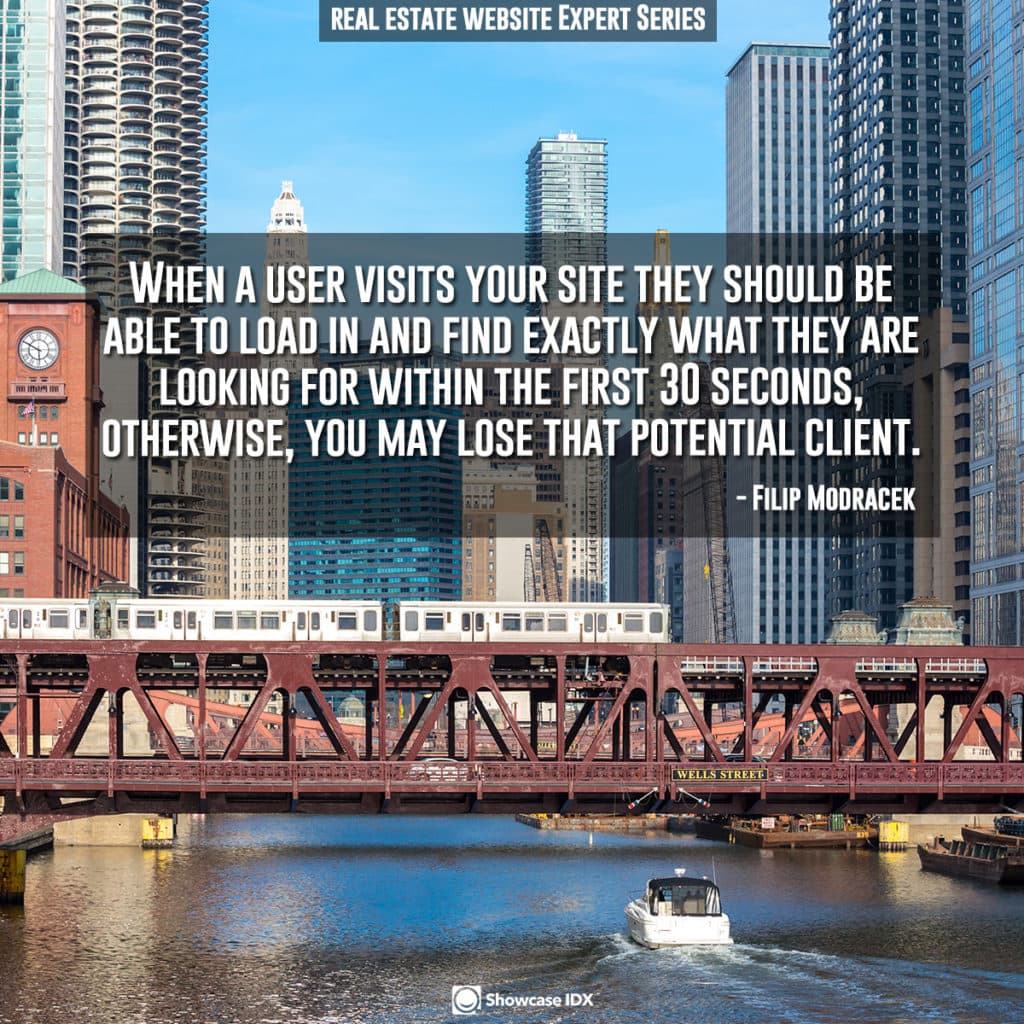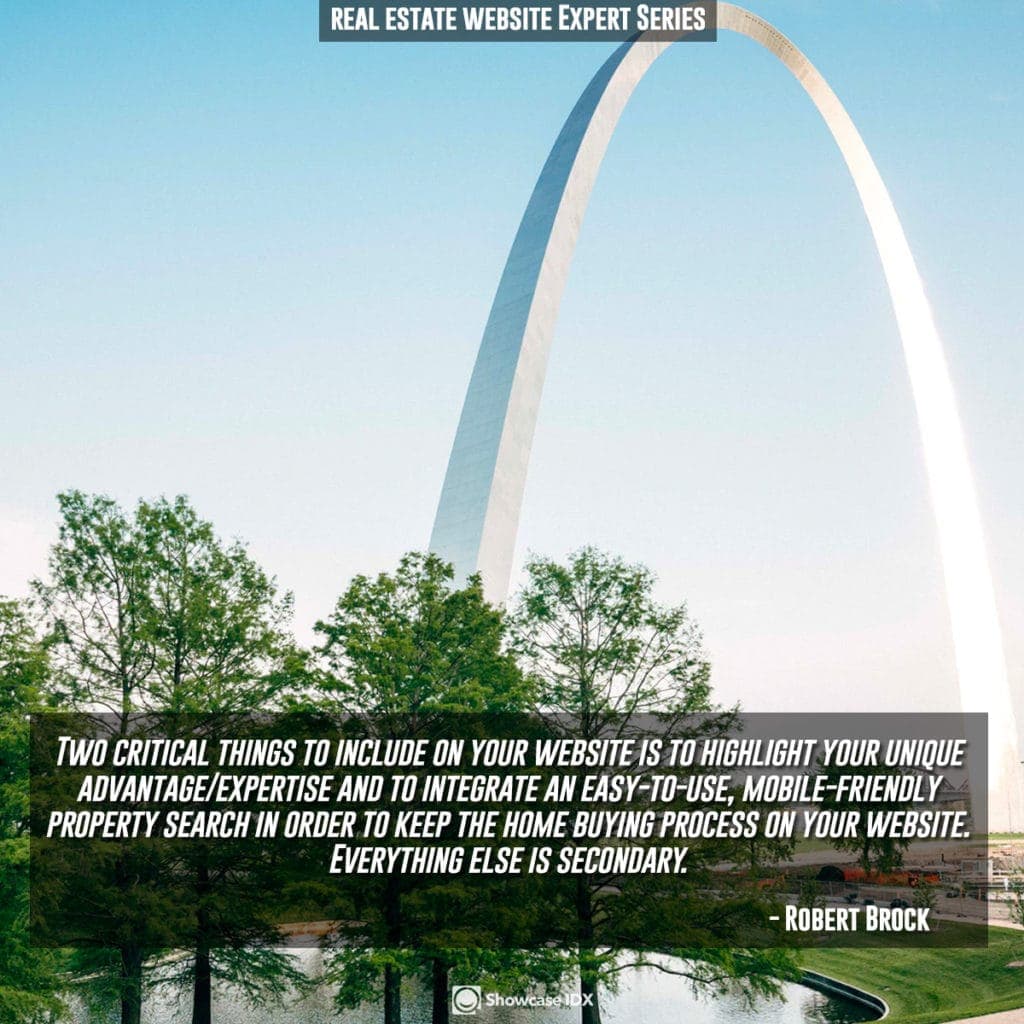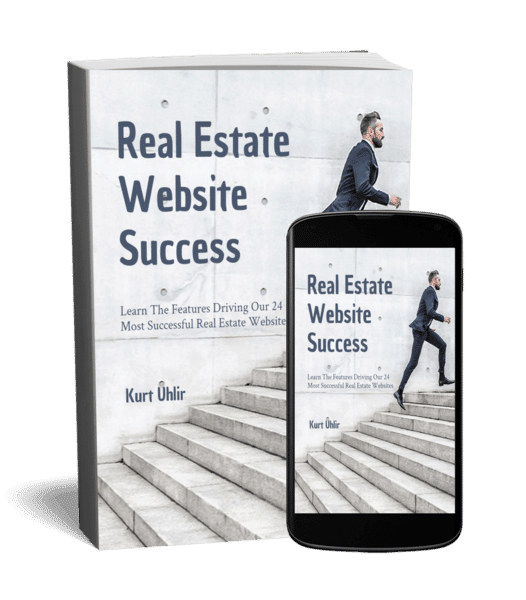The homepage of your real estate website isn’t good enough.
Or, rather, it isn’t good enough at generating leads, especially leads that turn into clients!
It might look great, be easy to navigate, have engaging copy, and be filled with professional branded images. But it’s still unlikely to deliver large quantities of qualified leads through the door.
The majority of real estate websites fail to help agents grow their businesses because they are not designed to be fully-optimized lead generating machines. Even many multi-million companies that sell to other businesses make the mistake of sending traffic to their homepages, with 44% of paid traffic being sent to the companies’ homepages instead of an optimized landing page.
A homepage is simply the face of your brand, the place for repeat visitor or past client to begin a new home search, and a gateway to learn more about your business.
That’s where a designated real estate landing page comes into play.
By sending paid and/or organic traffic to specific landing pages that are both relevant and refined, you’re far more likely to compel users to provide their contact information.
The trick is creating landing pages that actually convert. Want some help in that regard? Keep reading for 7 top tips on creating the best real estate land pages possible.

1. Experiment With Different Content
The very first thing to think about when designing a real estate landing page is how you’re going to get someone’s details.
There’s a number of effective strategies you can employ here.
Free home valuation tools, property search pages, or scheduling options (be it for a personal appointment or property showing) can all work wonders. Of course, you can offer giveaways and exclusive in-depth buyer/seller content too.
It’s up to you to play around, experiment, and see which delivers the best CR for your real estate business. Deliver value at no cost (other than their contact information) and you’re sure to accrue more leads.
Pro Tip: Want to create hot sheets and community pages that rank on Google and convert? Here is an in-depth walkthrough (video) and case study on how to create real estate landing pages that rank.
2. Keep Everything Simple
Choosing your method of lead-acquisition is only step one though. The next (crucial) piece of the puzzle is to put your page together in a way that maximizes conversion rate (CR).
Keeping things simple will help you do it.
Keep your copy short, snappy, and to the point. Clear the design of unnecessary distractions, and make sure the page is easy to scan and navigate. Likewise, your forms and tools should have limited fields to fill in, options from which to choose, or boxes to tick.
Less is more! The ease and simplicity involves will keep users engaged. They’ll be less likely to get distracted, confused, bored, or frustrated. They’ll be able to get what they want with minimal effort.
And you’ll get more of their leads as a result.
Pro Tip: Your focus should be on retaining visitors and giving them an experience that keeps them from jumping to Zillow or Trulia. “Showcase IDX retains 8.5x more clients than IDX Broker and 4x more clients than the typical iHomeFinder website”. After you finish this article, check out our success guide on the features that our most successful clients are using on their websites, with examples.

3. Hone Your Headline
Your landing pages should have a clear, unambiguous, and succinct headline too.
This is the first thing someone will see when they arrive on the landing page. Use it to grab their attention, deliver your message, and convince them to hand over their details!
The best-converting headlines relate closely to why a user’s there in the first place. For instance, someone might have clicked on an ad for a free valuation of their home. In this case, a good headline could read ‘You’re One Click Away From an Instant Valuation’, or something similar.
4. Include a Call to Action (CTA)
A CTA is a crucial component of any high-converting real estate landing page.
This is where you provide explicit direction on what you’d like a user to do. ‘Get your guide for first-time homebuyers’, ‘Arrange your viewing’, ‘Book a free call’, and ‘Browse listings near you’ are all possible examples.
You’d be surprised at how significant CTAs can be. A simple instruction can be the difference between an abysmal and a respectable CR! Make sure you include one on the landing page–preferably above the fold.

5. Remember the Fold
Think about what happens when you click on a web-link or advertisement.
You get taken through to a webpage, right?
The ‘fold’ is the bottom edge of the screen on which you first arrive. It’s your job to place all of the essential information, CTAs, images, and forms on your landing page(s) about that line.
Why? Because effort is the enemy in terms of lead generation, and scrolling down to see what’s below the fold requires it. Placing everything important above the fold is like putting your offer on the proverbial plate.
There’s no work do be done to access what they came for; you have everything in place (and on-show) to convince them to claim it.
Pro Tip: Even the best marketers frequently forget this or realize later that they could improve the content on landing pages that is above the fold. After I design and write a landing page, I say to myself (often out loud), “I have never been to this site, I do not know the person or brand that built it, how do I feel when I see this page”, and then I re-evaluate what I’ve created. It may seem weird but it takes this process for me to get out of what I “know” and my implicit assumptions to really review my landing pages with “fresh eyes” that a new visitor would have.

6. Make Sure It’s Mobile-Optimized
Long gone are the days when people browsed the internet exclusively on desktop computers.
We now use computers, tablets, and smartphones to scour the web, scroll through social media, and access the information we need.
That’s why it’s crucial for real estate landing pages to function on every single device! It means you cover all bases and, in doing so, maximize your chances of generating traffic and gathering leads.
Smartphones are by far the most important though. Why?
Because approximately 80% of Americans own one and the majority of search traffic comes from them! A landing page that isn’t mobile-optimized will be clicked back from in an instant. Both your brand and lead-generation efforts can falter in the process.
7. Test What Works
My final tip is to test every aspect of your landing pages over time.
Testing allows you to validate your assumptions and identify what actually works. It’s about taking an evidence-based approach to change. Rather than shooting in the dark for results, you experiment with different alternatives, monitor the outcomes, and iterate accordingly.
The subtlest alterations to copy, CTAs, and colors may deliver exponentially improved conversion rates. But you don’t know that unless you test, track, and analyze the data! Set up A/B tests at every opportunity to hone your landing pages and discover the winning formula for your individual brand.
Pro Tip: Review your competitors in your local market and agents focusing on your niche(s) in similar markets around the country for ideas. They can be a great source for new ideas and sparking your creativity of what to try with your clients.
Create a Winning Real Estate Landing Page
Building a fully-optimized real estate landing page is key to generating a steady supply of leads. Sadly, though, this is one task that can be easier said than done.
Lack the correct approach and all your hard work can fall short of the mark. Get it right, and you can see a 2x – 25x of leads from the same amount of traffic, or even more.
I hope the tips in this post will help any agent who’s struggling with this crucial undertaking. Keep them in mind and you’ll be on your way to more effective landing pages in no time.
Are you looking for a professional solution to your online real estate lead generation requirements? Click here to get started and see how we can help.





